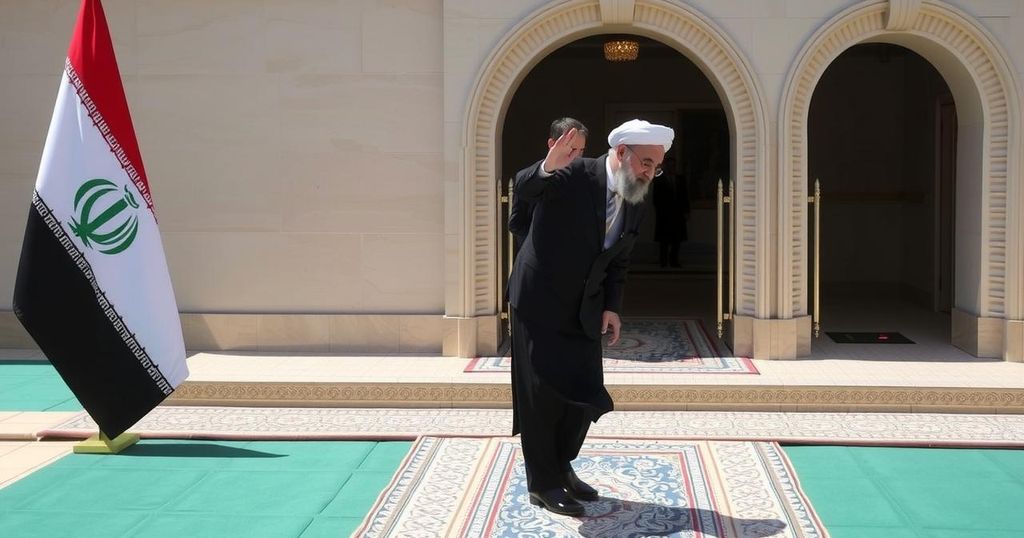Iran President’s Visit to Egypt Signals Thawing Diplomatic Relations
Iranian President Ebrahim Raisi’s recent visit to Egypt during an OIC summit signifies a thaw in diplomatic relations. This unprecedented meeting reflects a mutual interest in enhancing cooperation on regional issues, indicating a potential shift in alliances amidst a historically strained relationship. The visit marks a crucial step towards improved dialogue and collaboration between the two nations.
The recent visit of Iranian President Ebrahim Raisi to Egypt marks a significant step in the improving relations between the two nations. This unprecedented meeting took place during a summit of the Organization of Islamic Cooperation (OIC), suggesting a desire for closer diplomatic ties. Both countries acknowledge mutual benefits in cooperating on regional issues, reflecting a broader trend towards thawing relations amidst previous animosities. This visit indicates a potential shift in geopolitical alliances within the Middle East, highlighting the importance of regional diplomacy.
This diplomatic development underscores a moment of hope for enhanced dialogue and collaboration between Iran and Egypt, nations that have maintained a complex relationship fraught with tension for decades. The normalization of relations could have far-reaching implications for regional stability, economic cooperation, and collective security efforts against shared threats. Additionally, this visit symbolizes a cautious yet optimistic approach to diplomacy in a region often characterized by conflict.
Historically, Iran and Egypt have experienced strained relations, particularly since the 1979 Islamic Revolution in Iran, which fundamentally altered regional dynamics. The relationship was further complicated by Egypt’s peace treaty with Israel and its alignment with Western powers. However, in recent years, shifts in regional politics, including shared concerns over terrorism and instability, have created opportunities for renewed dialogue. This context serves as a backdrop for President Raisi’s visit, signaling potential changes in the geopolitical landscape of the Middle East, where alliances are increasingly fluid.
In conclusion, President Ebrahim Raisi’s visit to Egypt represents a meaningful milestone in the evolving diplomatic relationship between Iran and Egypt. This engagement not only opens avenues for future cooperation but also enhances prospects for stability in the region. As both nations explore shared interests, the implications extend beyond their bilateral ties, potentially influencing broader regional dynamics and the future of Middle Eastern diplomacy.
Original Source: www.al-monitor.com




Post Comment